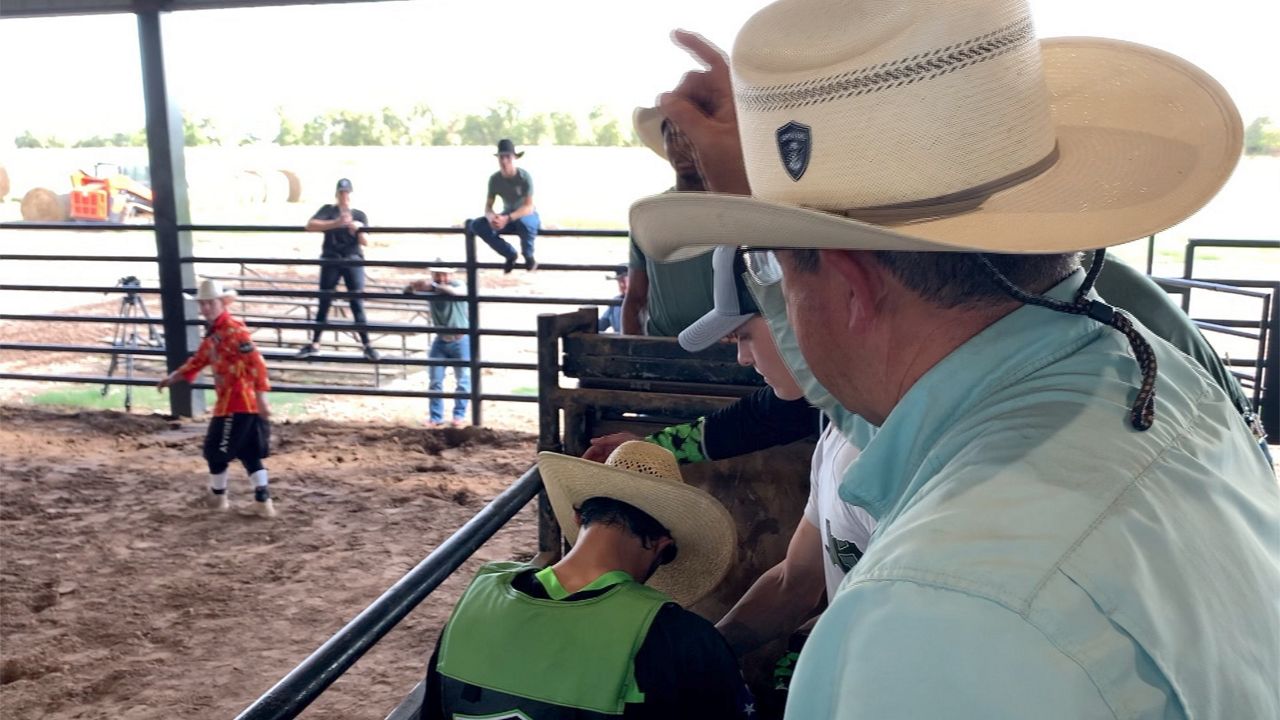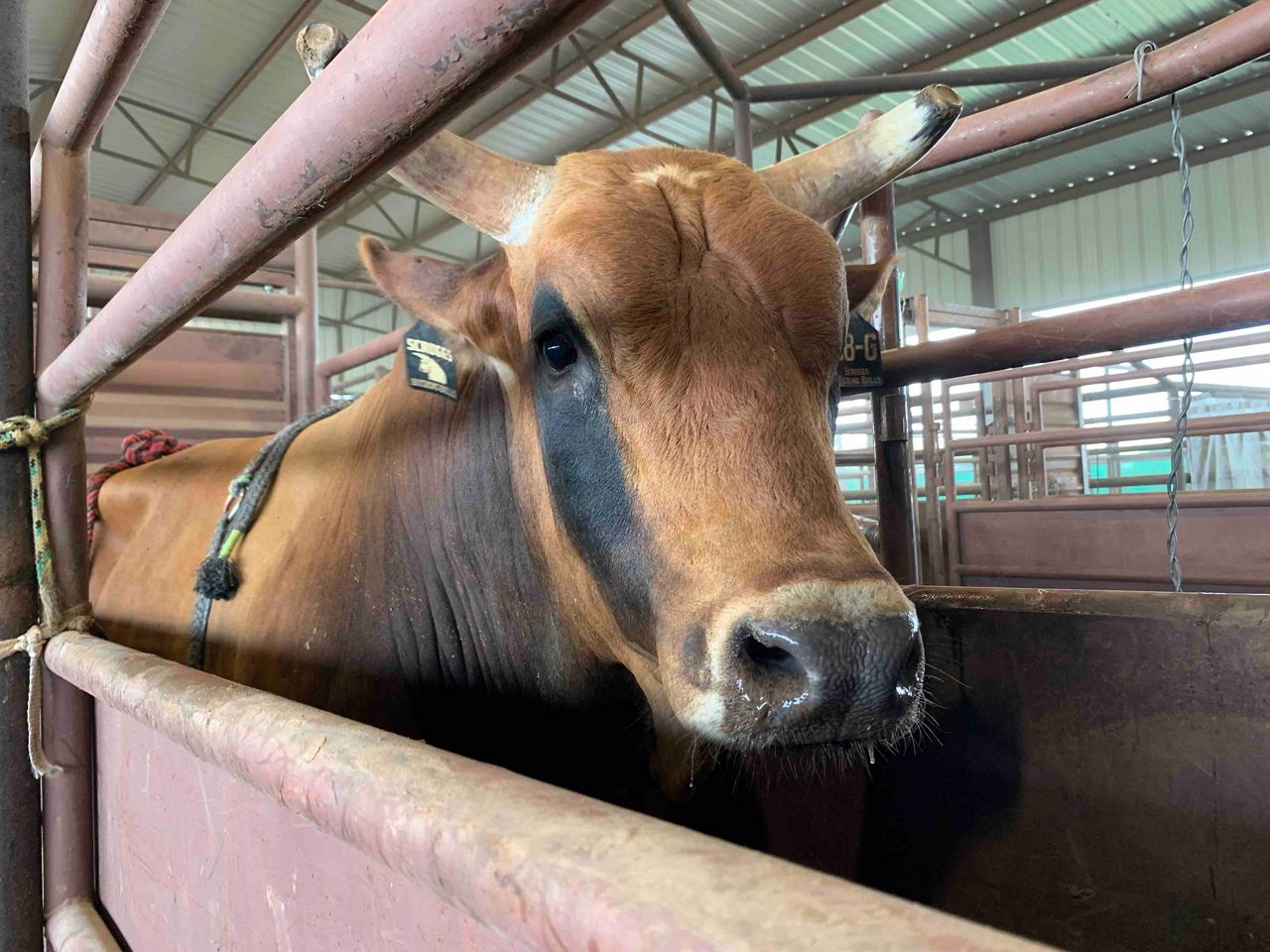AUSTIN, Texas — Professional bull riding has been billed as the most dangerous eight seconds in sports, but Bryce Cooper's eyes weren't usually fixated on the rider.
Instead, every time the gates swung open, Bryce Cooper was watching the bulls with intent.
“The good ones know, 'It's time for me to turn it on,'” said Cooper about his animals.
Cooper got his first bull as a teenager, and now four decades later, he has around 100 head as co-owner of Cooper/Scruggs Bucking Bulls outside of Thrall, Texas.
“I grew up around it my whole life. That's what I want to do," Cooper said. "I feel like I got the greatest job in the world. Not too many people can sit there and say they wake up and do what they love to do.”

Cooper is one of about 150 stock contractors who breed and train the animals for the Professional Bull Riders.
“You never really know how they're going to react when they go to the big stage," Cooper said.
Raising a bucking bull has gotten a lot more precise since he started. Cooper now works with a nutritionist to make sure the bulls are eating correctly.
“Your hay, your vitamins, your minerals, all that intake," Cooper said. "We have that formulated in their ration. I know they're getting it every day.”
He also has access to a genetic registry for more accurate breeding.
“We used to just go to pasture, take the bull out and try and see if it worked or not. No genetic history, no nothing," Cooper said. "That didn't work very good."
As a stock contractor, Cooper's animals are part of a registry of over 300,000 bucking stock animals managed by American Bucking Bull Incorporated (ABBI).
“It’s not luck anymore. At this point. It's a science." said ABBI president Jay Daugherty. "These guys know what bulls are producing, what females are producing.”
Once a bucking bull is bred and trained, it's up to ABBI to make sure the best bulls are in rotation with the PBR.
“Every week, every day, eat, drink, sleep, bucking bulls," Daugherty said. "It's not something that anybody just off the street could do.”

Competitive history, temperament and age are all factored into the selection process.
“They’re our counterparts in this. Each one of them has a different personality and you’ve got to approach each of them a different way," said Austin Gamblers bull rider Ezekiel Mitchell. "They’re like our dancing partners.”
Most of the bulls are at least three years old when they get a chance with the pro riders.
"You're wanting that enthusiasm when they buck, but the rest of the time you want them calmed down," Cooper said.
Wisdom from a man who's spent most of his life getting the animals ready for that eight-second ride of a lifetime.
“When they're doing this because they like doing it, versus doing it out of fear," Cooper said about his champion bulls. "That's when you got one.”



